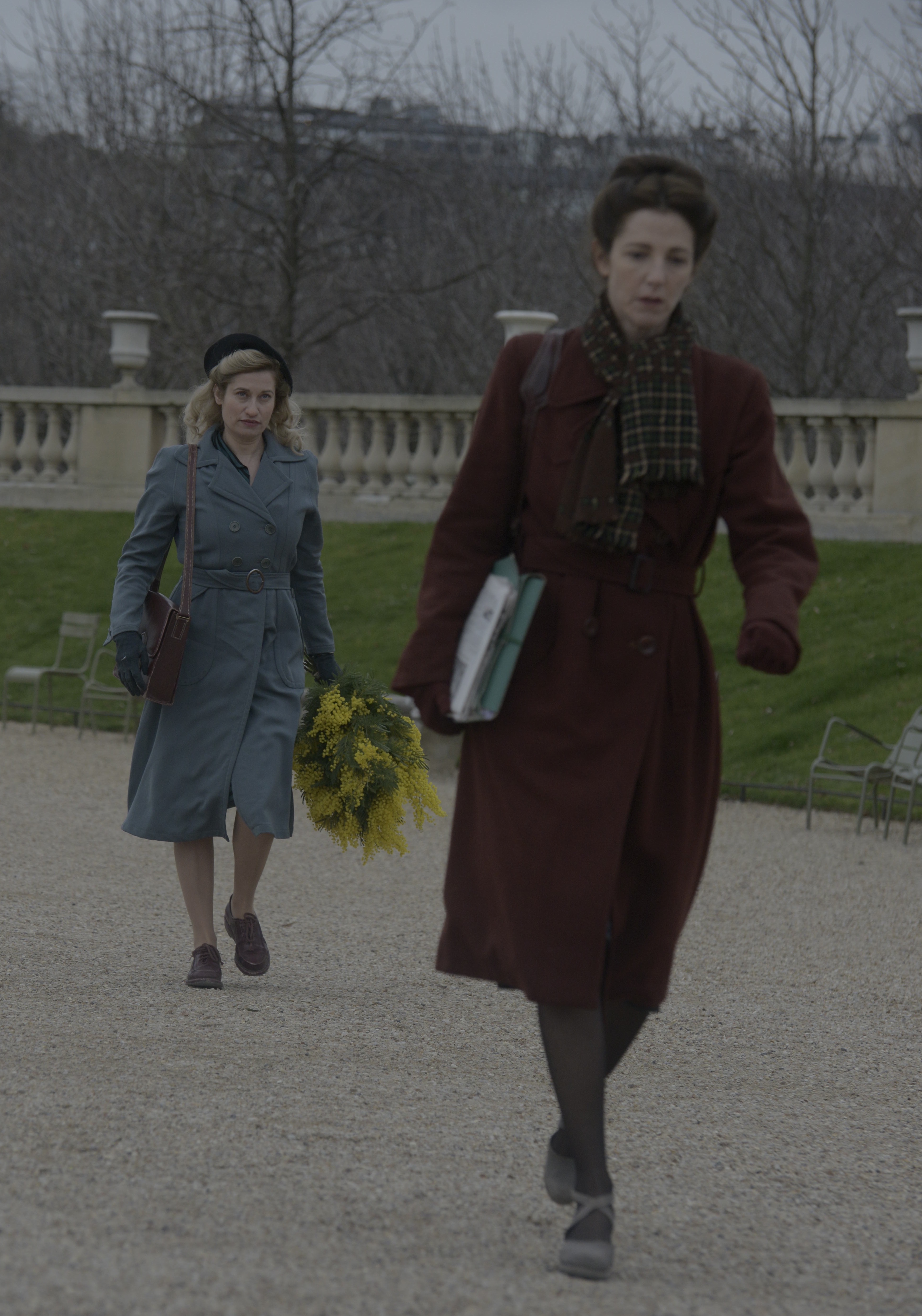Forgotten writers seldom return to favor. There’s Melville and… that’s about it. Rarely read today, French writer Violette Leduc (1907–1972) hit her peak of renown a half-century ago. Until the late success of her raw, unfiltered memoirs (beginning with La Batarde), she was best known—if at all beyond Parisian literary circles—as the protegee of Simone de Beauvoir, with whom Leduc was unhappily in love. Leduc’s scandalous depiction of lesbian amour, during the ’40s and ’50s, frightened her editors. Cuts were made and sales were few. Then came the sexual revolution of the ’60s—sweet vindication at last.
Because Leduc’s struggle was so long, the task is not an easy one for director Martin Provost in this admiring biopic, Violette. There’s a lot of life material to pack in here, setback after setback, in a picture spanning almost 30 years. His approach is comprehensive and linear, too much so. This happened and then this happened and then this happened—fine for a war movie; not so great when watching Leduc (Emmanuelle Devos) sit down to write… again and again and again. (Thank God the movie has a happy ending, a spoiler that I, as a fellow writer, happily disclose: Leduc ends up better than most of us poor deadline hacks—with a perfect Provence farm house to boot.)
You can’t fault Devos’ fierce, committed performance as an insecure author who forever rates herself an ugly duckling, provincial and untalented. We meet Leduc during a sham marriage during the war. She supports her gay husband as an industrious black marketeer—then, catastrophe, the war ends! Suddenly deprived of a vocation, she pours her soul into a manuscript and plops it into the startled lap of de Beauvoir (Sandrine Kiberlain), whose slightly aloof poise is rattled by her pupil’s sheer neediness—Sartre never behaves this way!
Oh, yeah, that’s another problem with Provost’s approach: the historical footnoting and encyclopedic name-dropping. Violette is thick with the musk of Sartre, Camus, and Jean Genet (only the latter is depicted), plus Leduc’s various patrons and detractors, none of whom we care about. It may be accurate, but it’s way too much. This is the kind of movie where the ever-avid yet frustrated Leduc asks de Beauvoir why she’s so busy all the time. Oh, it’s just a little book I’m working on, but I can’t decide on a title . . . The Second Gender? The Second Person?
Something like that…
Half of good writing (i.e., art) is editing, the pruning of what you don’t need to say after you’ve committed it to paper. Cuts must be made, Leduc’s editors—de Beauvoir included—keep telling her. Indeed.
Opens Fri., July 11 at Harvard Exit. Not rated. 138 minutes.
bmiller@seattleweekly.com








